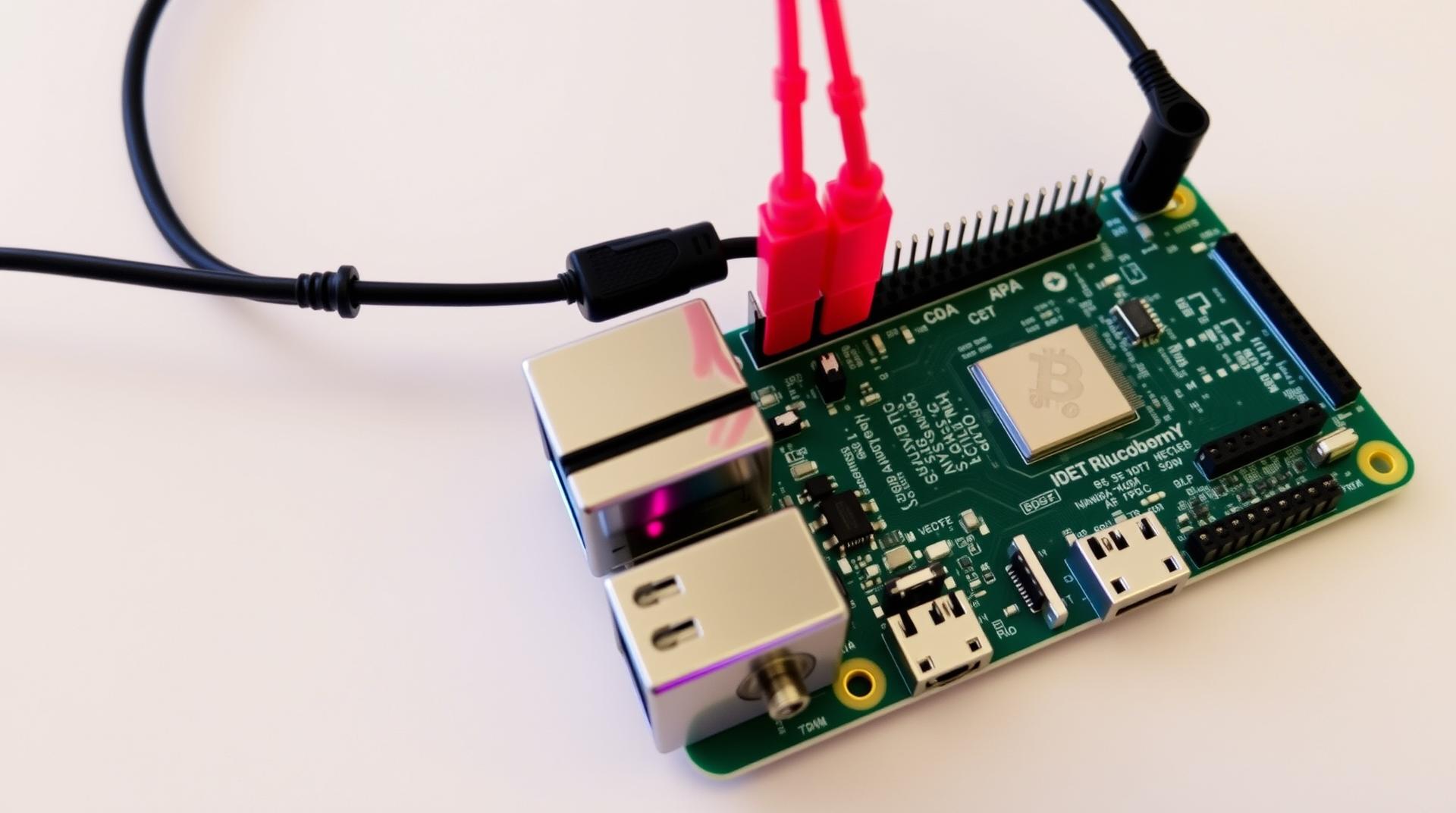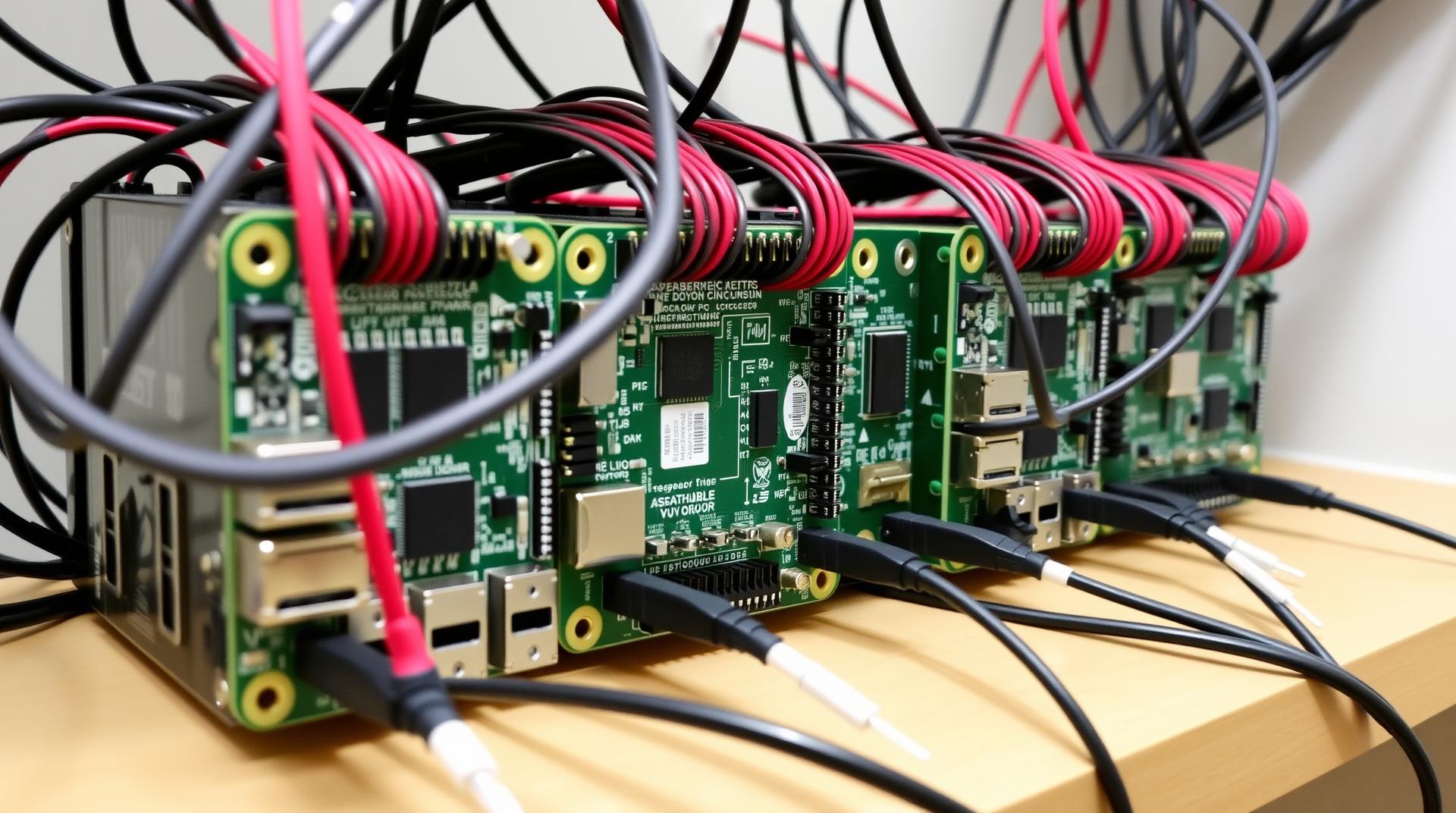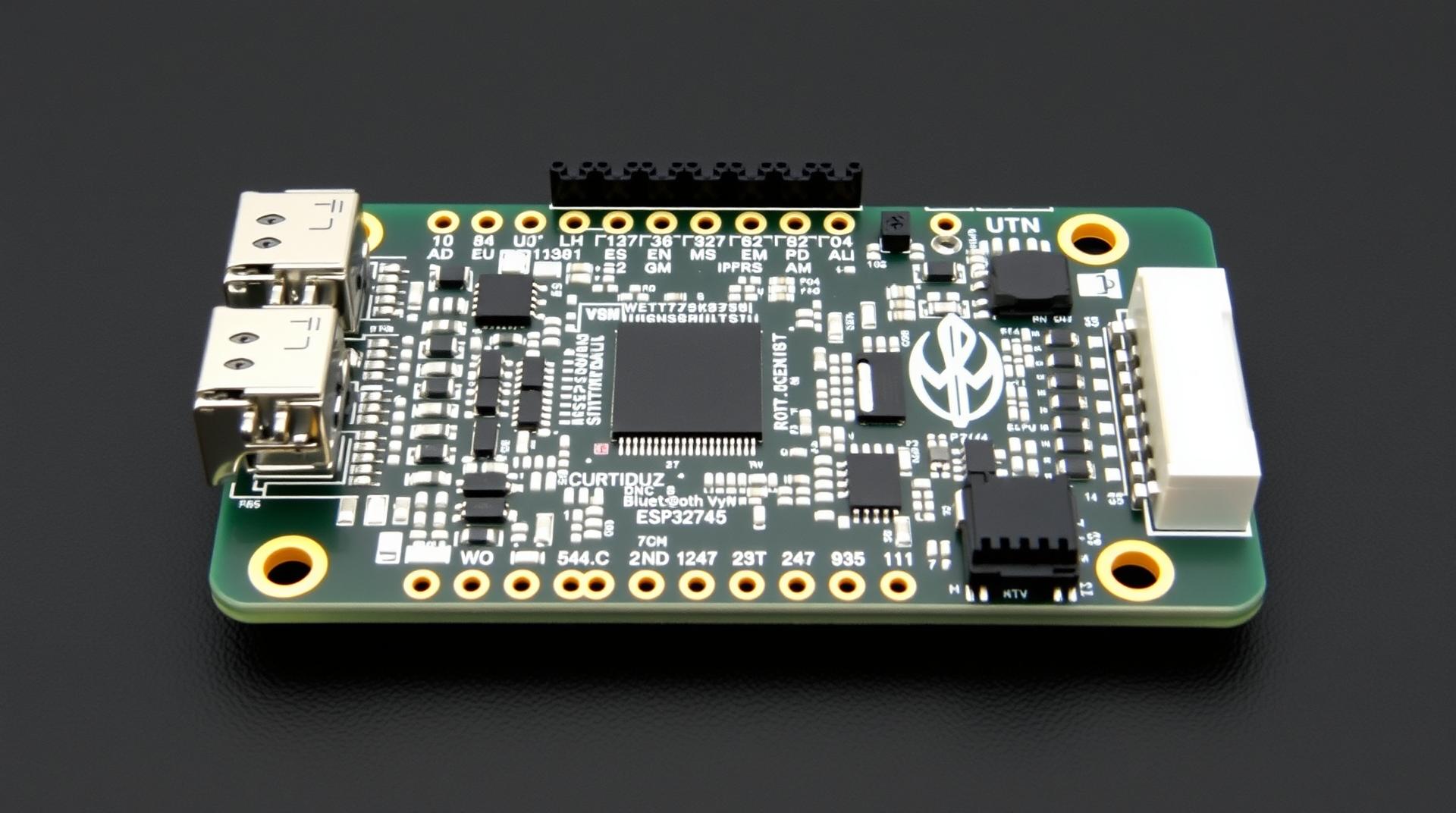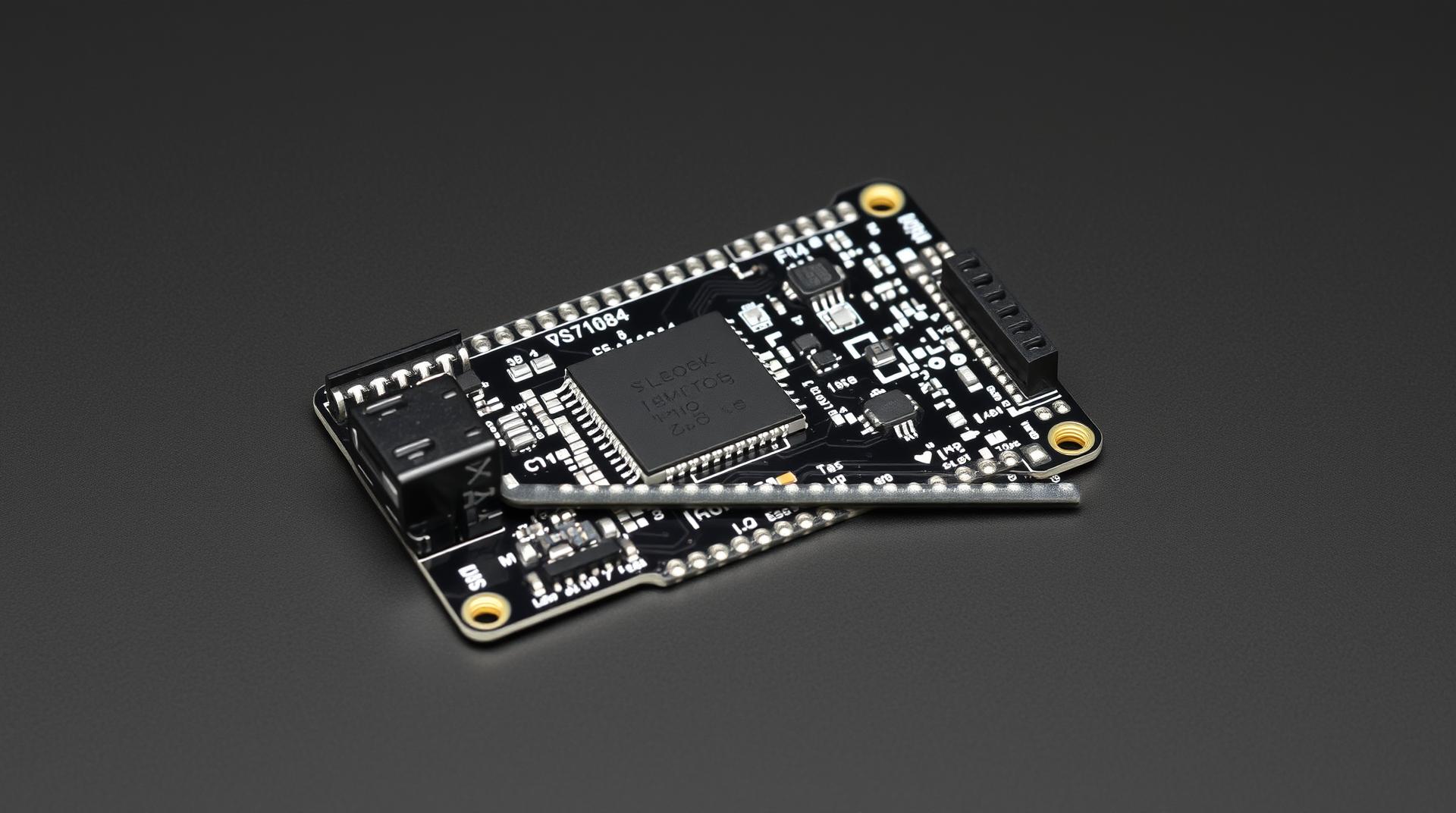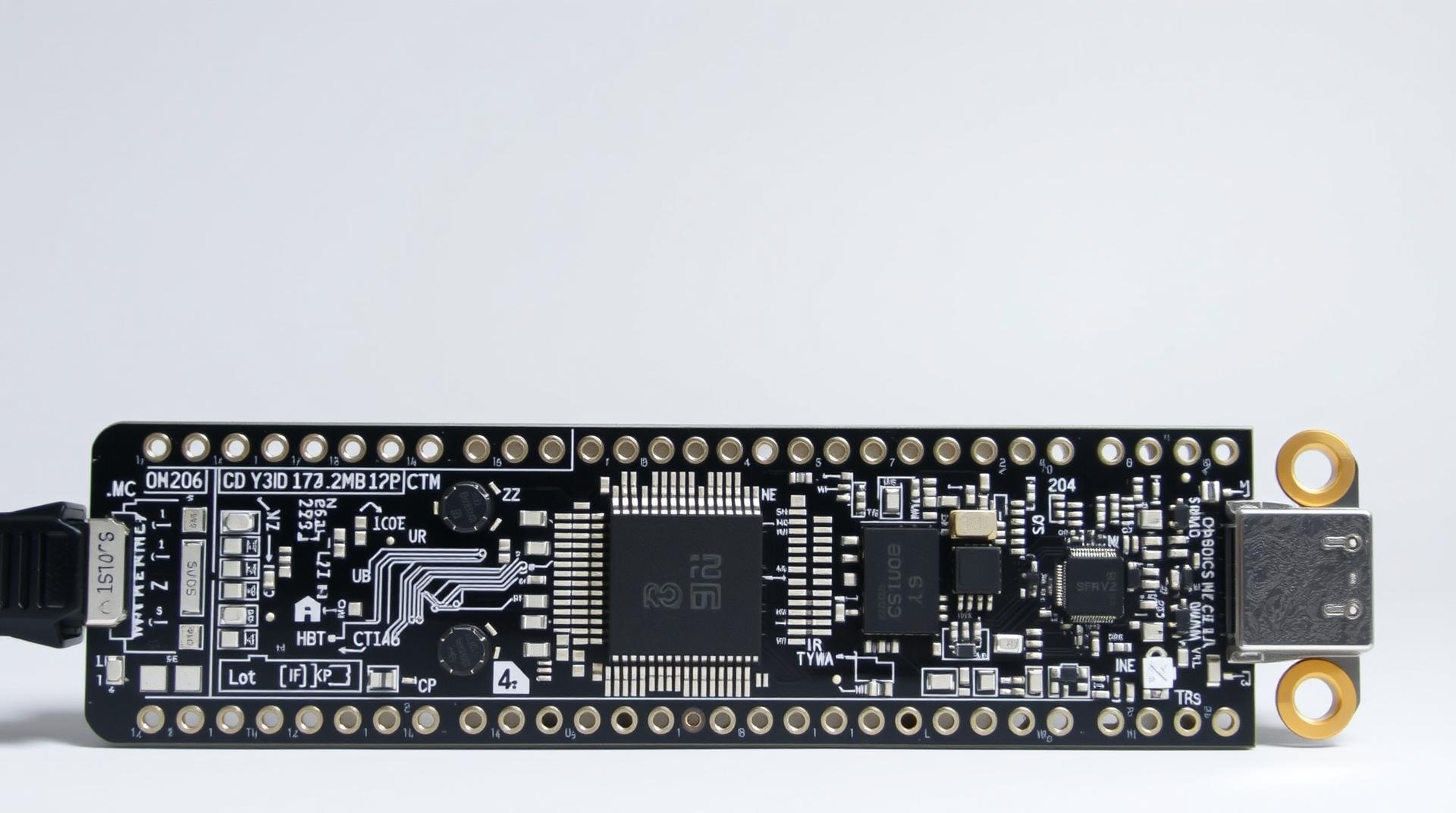Explore how Raspberry Pi 5 is revolutionizing blockchain technology with its energy-efficient, affordable, and modular design. Learn how to run blockchain nodes, host decentralized apps, and create secure blockchain networks using the Pi 5.
Blockchain technology has become synonymous with decentralized computing, secure networks, and transparent financial transactions. Its applications are rapidly growing beyond cryptocurrency into sectors like supply chain, healthcare, and data management. With the launch of the Raspberry Pi 5, this versatile single-board computer is increasingly being used as a low-cost yet powerful platform for blockchain-related projects.
The combination of affordable hardware, energy efficiency, and improved processing power makes the Raspberry Pi 5 an excellent choice for running blockchain nodes, hosting decentralized applications (dApps), and experimenting with secure distributed networks. This article delves into how the Raspberry Pi 5 can be deployed in the blockchain ecosystem and the various projects that benefit from its modularity.
1. The Growing Role of Blockchain in Decentralized Computing
Blockchain is reshaping the way we think about data security, ownership, and network decentralization. Traditional centralized networks rely on a single point of control, which can be vulnerable to attacks, failures, or censorship. In contrast, blockchain networks distribute data across a decentralized network of nodes, which verify and secure transactions, making them resistant to tampering and outages.
Blockchain has found its most prominent application in cryptocurrency, where decentralized ledgers (such as Bitcoin and Ethereum) enable secure, transparent financial transactions without the need for intermediaries like banks. Beyond cryptocurrency, blockchain is being adopted for:
- Supply chain transparency, ensuring the provenance of goods and services.
- Decentralized finance (DeFi), allowing users to access financial services without traditional banking.
- Secure data management, where blockchain ensures data integrity and authenticity.
The Raspberry Pi 5, with its low-cost, low-power consumption, and improved hardware, is increasingly becoming a popular choice for blockchain enthusiasts and developers.
2. Why Raspberry Pi 5 is Ideal for Blockchain
The Raspberry Pi 5’s hardware upgrades, including the quad-core ARM Cortex-A76 processor and up to 8GB of RAM, provide the necessary computational power to handle blockchain tasks, such as running nodes, hosting dApps, and mining cryptocurrencies. Here’s why Raspberry Pi 5 is a compelling choice for blockchain projects:
- Low Power Consumption: Blockchain nodes often run continuously to verify transactions, and the Raspberry Pi 5’s energy-efficient design makes it ideal for long-term, low-cost operation. Compared to traditional servers, it consumes a fraction of the power, making it more sustainable.
- Affordable and Scalable: Building a blockchain node or decentralized application on a Raspberry Pi 5 is much cheaper than using traditional desktop or server hardware. This affordability allows developers to set up multiple nodes for redundancy or to experiment with different blockchain networks.
- Enhanced Processing Power: The quad-core Cortex-A76 processor and improved GPU allow Raspberry Pi 5 to manage the computational load required for verifying blockchain transactions or running decentralized applications in real time.
- Expandable Storage: With support for M.2 SSD storage via PCIe, the Raspberry Pi 5 provides faster, larger storage options compared to previous models, which is essential for storing blockchain ledgers and transaction data.
- Modular Design: The Raspberry Pi 5’s modularity allows for easy integration with external hardware, such as hardware security modules (HSMs), that can enhance security when handling sensitive private keys.
3. Blockchain Projects with Raspberry Pi 5
- Running Blockchain Nodes One of the primary uses for Raspberry Pi 5 in blockchain is running full or light nodes for various cryptocurrencies, including Bitcoin and Ethereum. A full node stores the entire blockchain ledger and validates new transactions. Raspberry Pi 5’s enhanced storage capabilities, such as adding M.2 SSDs, make it suitable for running these nodes efficiently without taking up as much space or power as a traditional server.
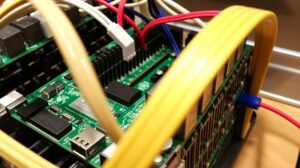
Example Project:
Running a Bitcoin Node
By running a full Bitcoin node on Raspberry Pi 5, users can participate in verifying and propagating Bitcoin transactions, contributing to the network’s decentralization. A light node option can also be set up, which requires less storage, for users who only want to validate transactions without storing the entire blockchain ledger. Using the Pi 5’s energy-efficient design ensures that the node can run continuously without high operating costs.
- Personal Cryptocurrency Mining Rig Mining cryptocurrencies, especially smaller or emerging coins, have become accessible with low-power hardware like Raspberry Pi 5. Although the Raspberry Pi 5 lacks the computational strength to mine large cryptocurrencies like Bitcoin profitably, it can mine niche altcoins that use Proof of Stake (PoS) or low-intensity Proof of Work (PoW) protocols.
Example Project:
Mining Altcoins on Raspberry Pi 5
Setting up a Raspberry Pi 5 to mine lightweight altcoins, such as Verium or Monero (on a small scale), allows users to participate in the mining ecosystem without the steep upfront investment required for high-end GPUs or ASICs. The Pi 5 can be paired with USB mining hardware to boost its mining power, and with its low energy consumption, it can run continuously with minimal costs.
- Hosting Decentralized Applications (dApps) Raspberry Pi 5 can also be used to host dApps and smart contracts on blockchain platforms such as Ethereum, EOS, or Binance Smart Chain. dApps are decentralized applications that operate on blockchain networks, providing transparency, security, and decentralized control.
Example Project:
Deploying a dApp on Raspberry Pi 5
By setting up a Raspberry Pi 5 as a host for a decentralized application, developers can test, run, and maintain their own blockchain-based services. dApps in finance, gaming, or social networks can be deployed, offering decentralized control to users. The Pi 5’s modularity allows integration with secure hardware components, ensuring safe handling of sensitive data and private keys.
- Private Blockchain Networks For enterprises or developers looking to experiment with blockchain outside of the public sphere, Raspberry Pi 5 can be used to create private blockchain networks for specific use cases. These private chains are often used in supply chain management, healthcare, or corporate environments to secure sensitive data and transactions.
Example Project:
Setting Up a Private Blockchain
Using Raspberry Pi 5 to build a private blockchain for tracking goods within a supply chain ensures transparency and data security. The blockchain can be programmed to automatically verify and record transactions across multiple Raspberry Pi nodes, providing real-time, immutable data on the flow of goods or information.
4. Expanding Blockchain Capabilities with Raspberry Pi 5
Blockchain development on Raspberry Pi 5 isn’t limited to traditional uses. By integrating additional hardware modules, users can extend its capabilities for advanced use cases:
- Hardware Security Modules (HSMs): These modules can be attached to Raspberry Pi 5 to securely store private keys and cryptographic materials used in blockchain transactions. This ensures that the sensitive data required to sign transactions is safely stored, reducing the risk of theft or hacking.
- Cold Wallet Storage: Raspberry Pi 5 can be used as a cold wallet, a secure offline storage device for cryptocurrencies, ensuring that private keys remain offline and safe from potential online attacks.
Raspberry Pi 5 brings affordable, energy-efficient, and highly modular computing power to the blockchain ecosystem. Its applications in running nodes, hosting decentralized apps, and mining make it an excellent tool for both hobbyists and developers experimenting with blockchain technology. With the rise of decentralized networks and secure data handling, Raspberry Pi 5 is positioned to be an essential platform in the ongoing evolution of blockchain.

